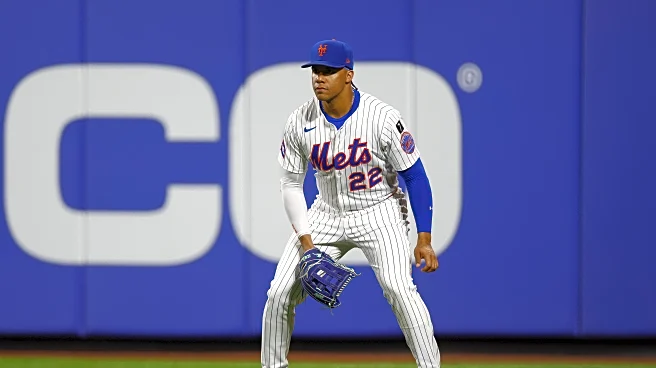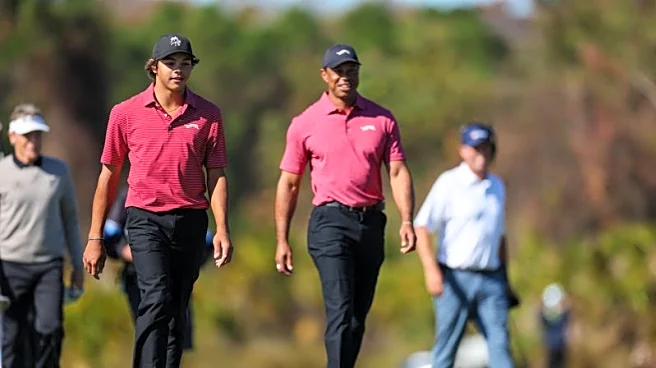Rapid Read • 8 min read
The Los Angeles Angels have made strategic moves at the MLB trade deadline, acquiring two veteran setup men and an infielder in exchange for three minor leaguers. Despite being three games under .500 and facing a 1.3% chance of making the playoffs, the Angels are focused on developing their young core. General Manager Perry Minasian emphasized the importance of playing competitive games in August and September to foster growth and experience among the team's younger players. The Angels aim to end their 10-year playoff drought, competing against teams like the Seattle Mariners and Texas Rangers for a wild-card spot.
AD
The Angels' decision to bolster their roster rather than rebuild reflects a commitment to competitiveness and player development. This approach could impact the team's long-term strategy, as they aim to cultivate a winning culture and prepare their young players for future success. The trades also highlight the team's focus on maintaining fan engagement and avoiding a complete rebuild, which could lead to decreased attendance and support. The Angels' strategy contrasts with other teams that have opted for more aggressive rebuilding efforts, underscoring the varied approaches within MLB.
The Angels will continue to monitor the performance of their young core as they navigate the remainder of the season. The team's ability to play meaningful games in the coming months will be crucial for assessing the effectiveness of their trade deadline strategy. Additionally, the Angels face decisions regarding player contracts and arbitration eligibility, which could influence their roster composition and financial planning for the next season. The outcome of these strategic moves will likely shape the team's approach to free agency and player acquisitions in the future.
The Angels' approach raises questions about the balance between immediate competitiveness and long-term rebuilding in professional sports. Their strategy may serve as a case study for other teams facing similar dilemmas, particularly in markets where fan engagement is a priority. The team's reliance on young talent also highlights the importance of player development systems and scouting in achieving sustained success. As the Angels navigate these challenges, their decisions could influence broader discussions about team management and market dynamics in MLB.
AD
More Stories You Might Enjoy












